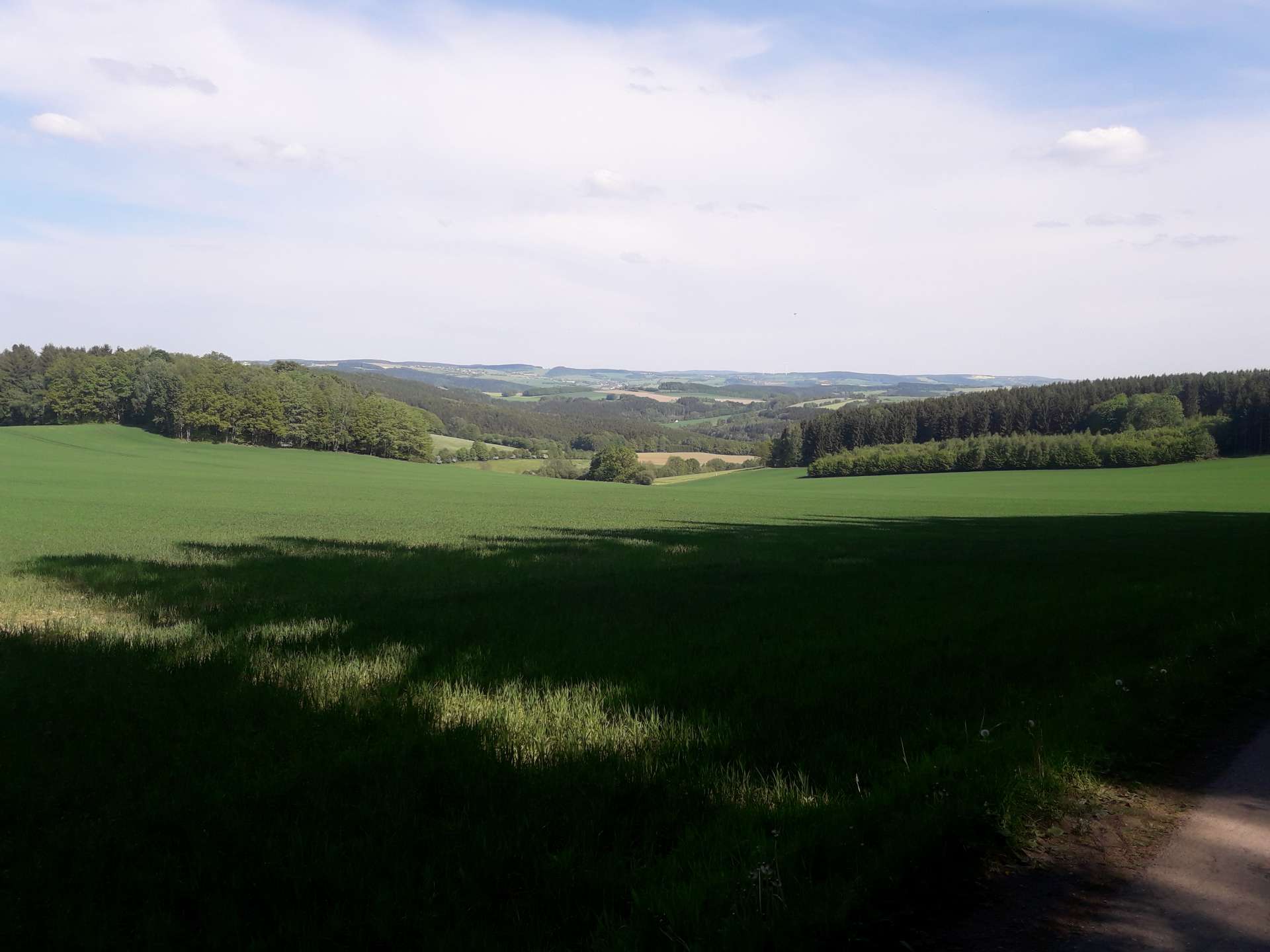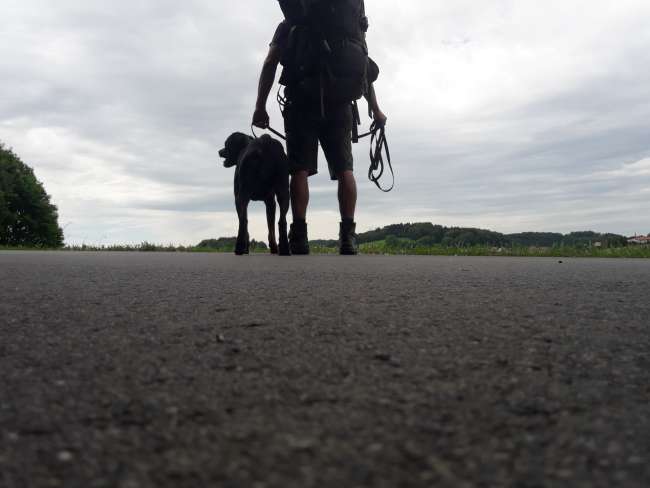Stepanzminda
Გამოქვეყნდა: 30.06.2019
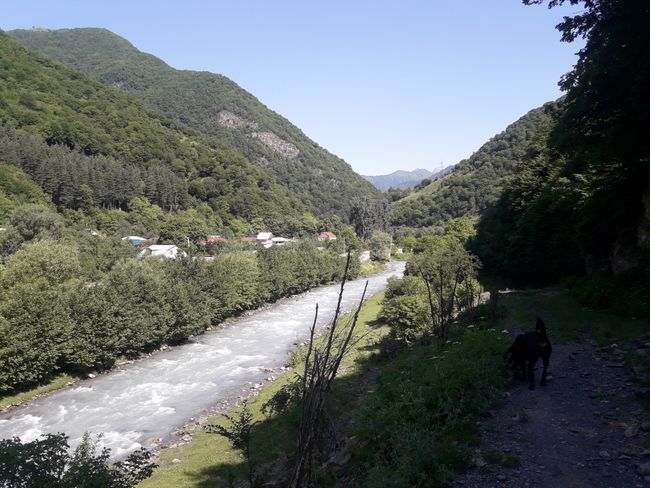
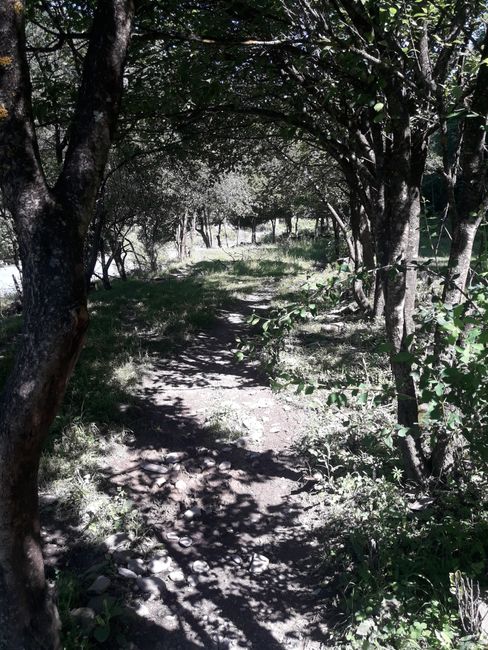
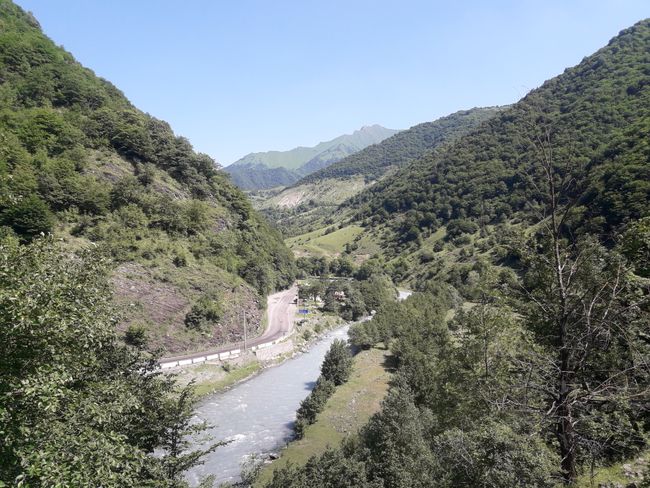
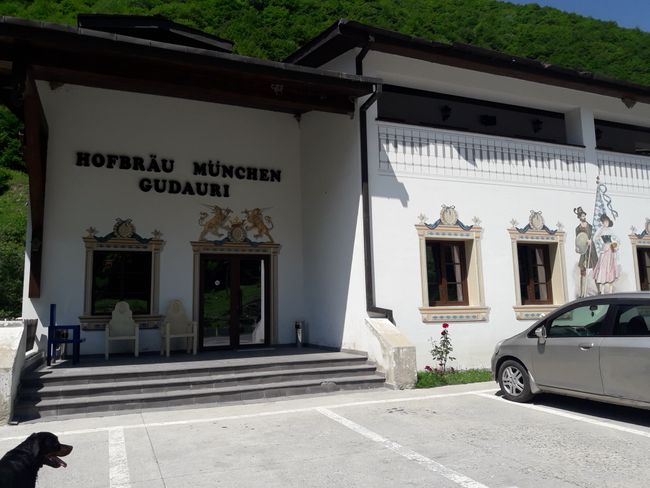
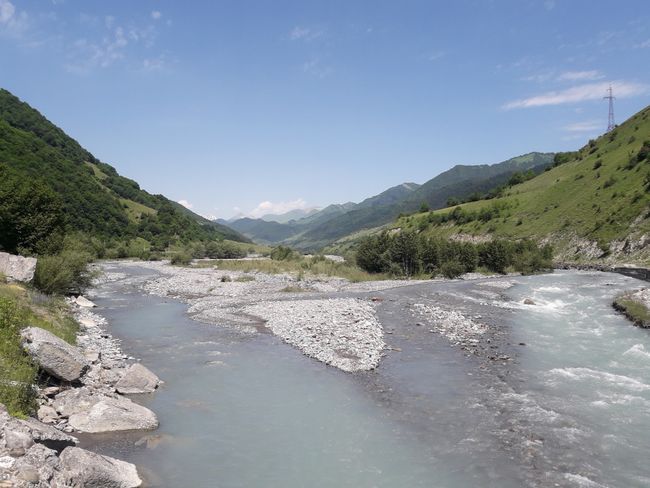
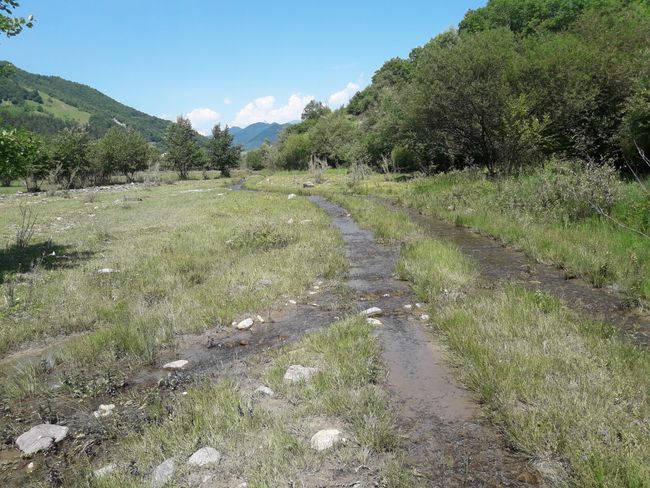
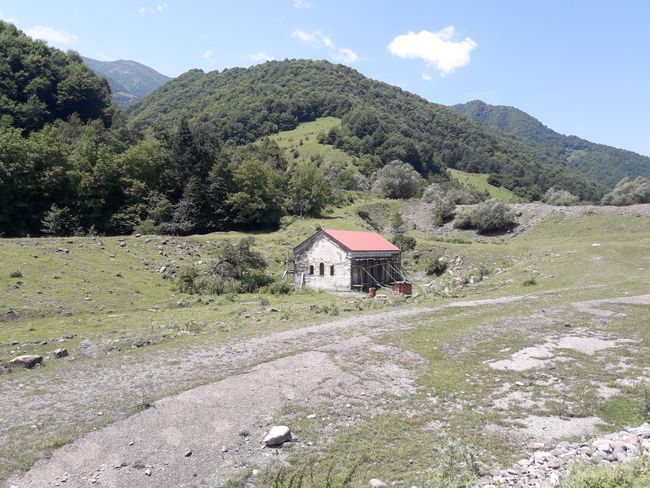
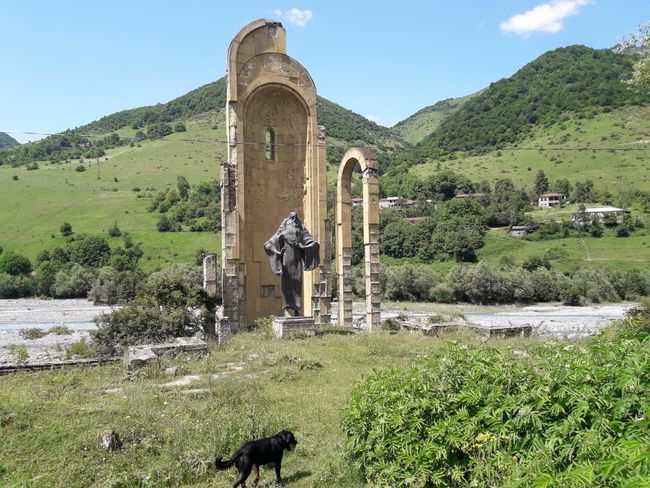
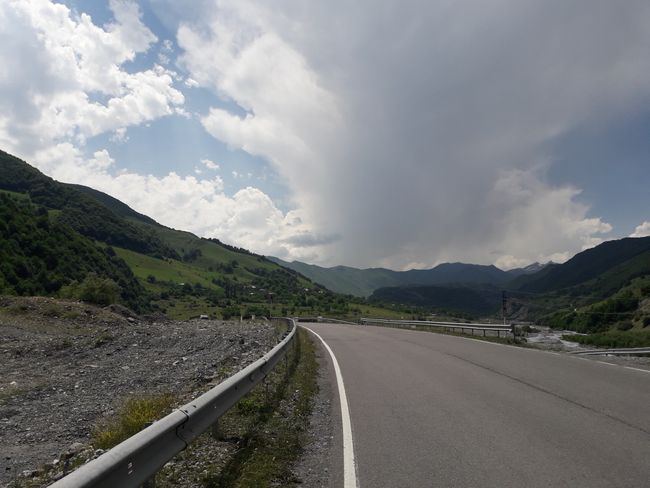
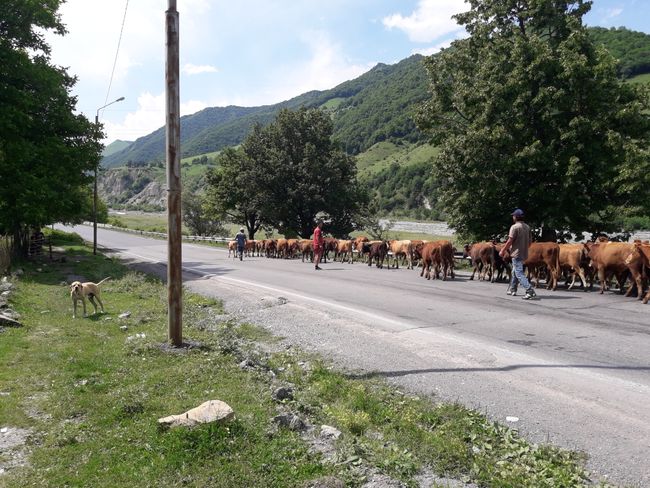
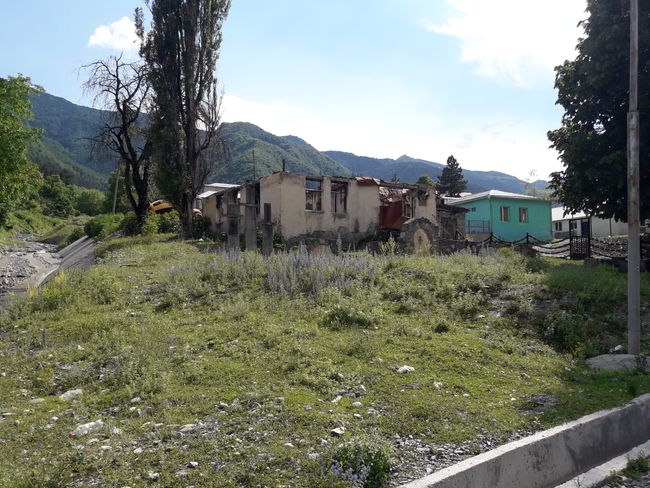
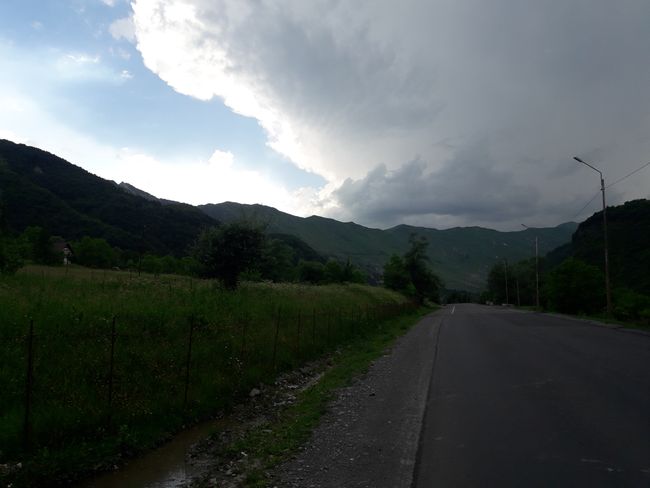
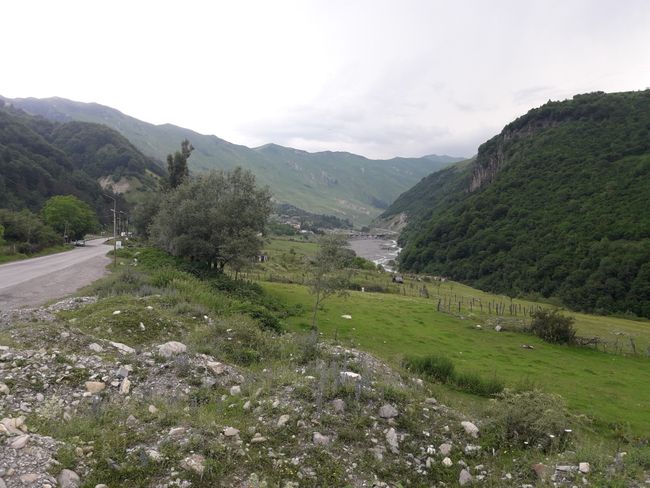
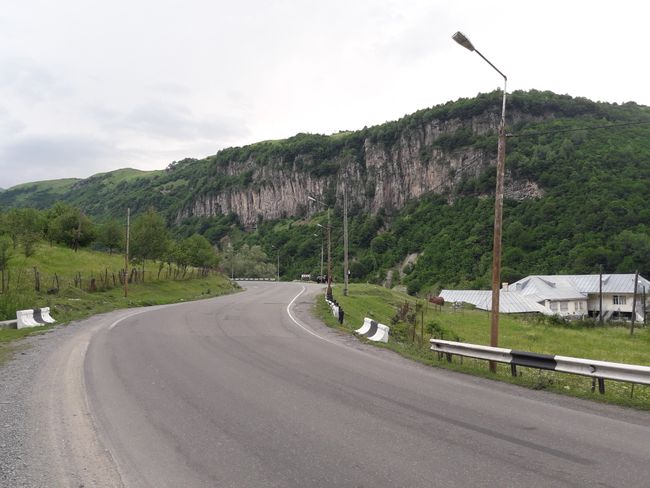
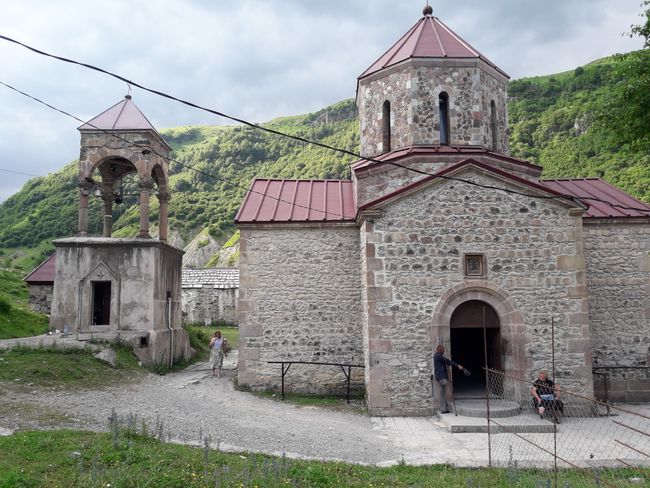
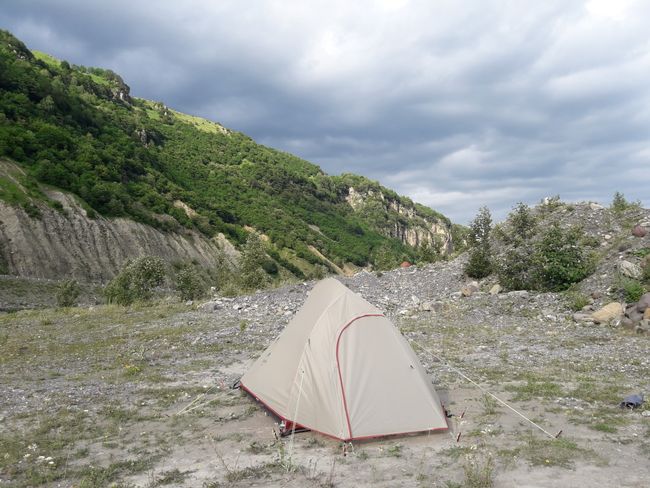
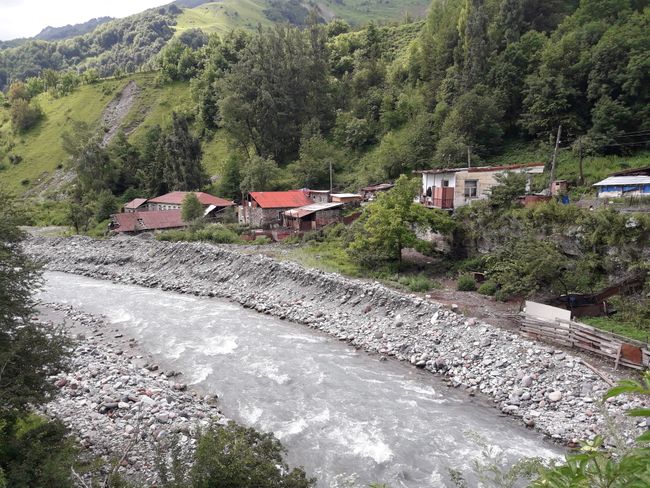
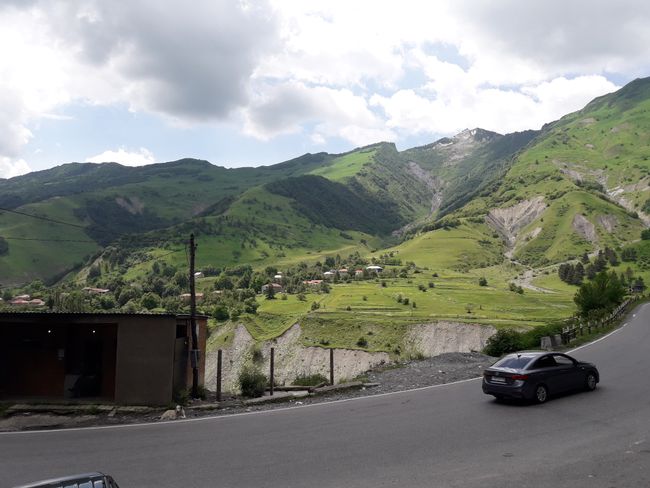
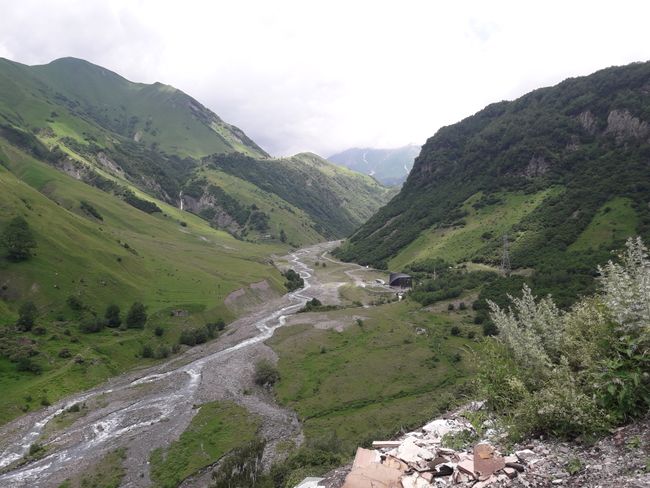
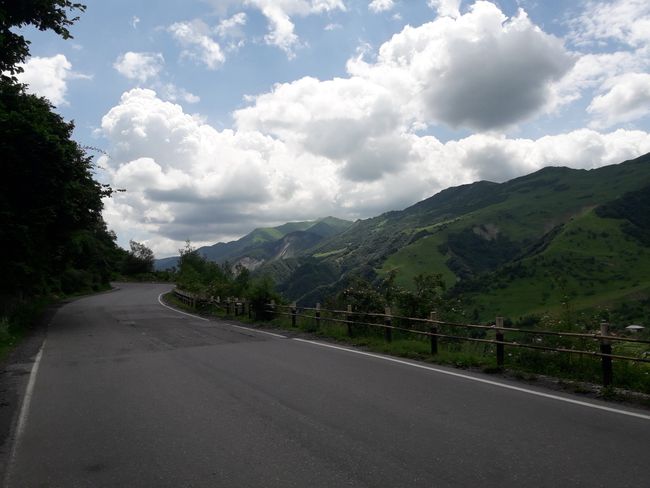
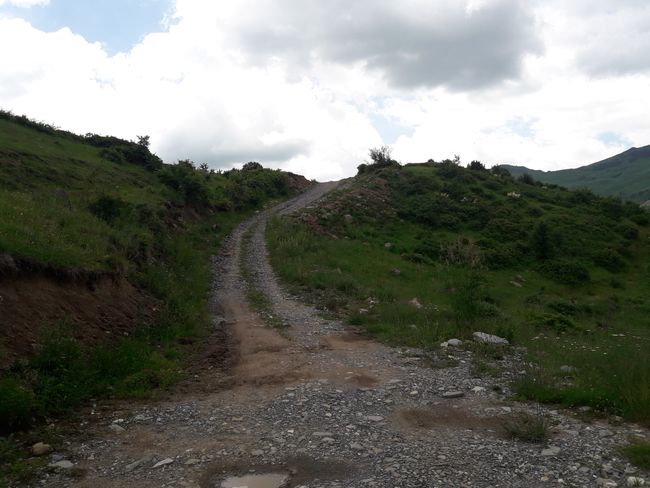
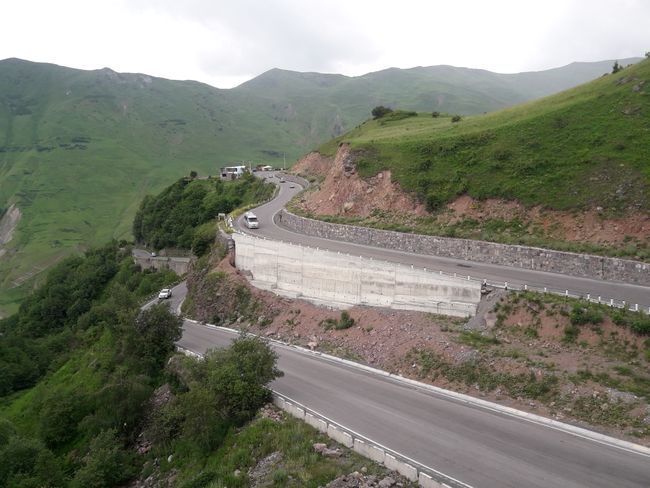
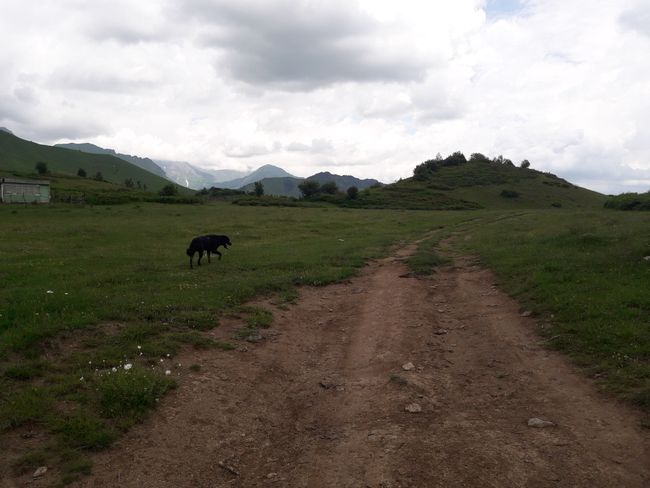
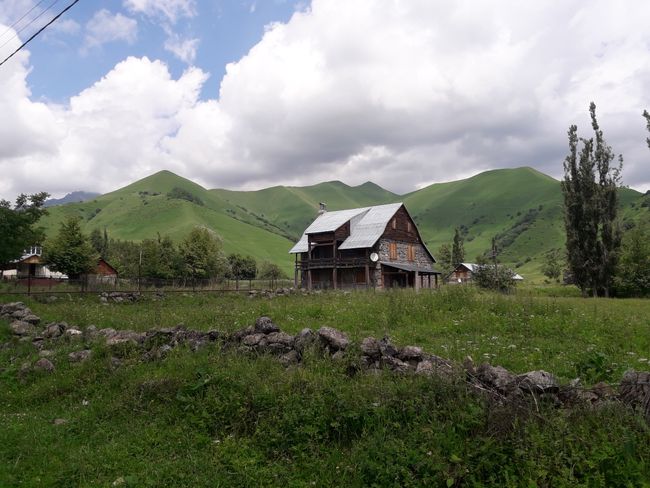
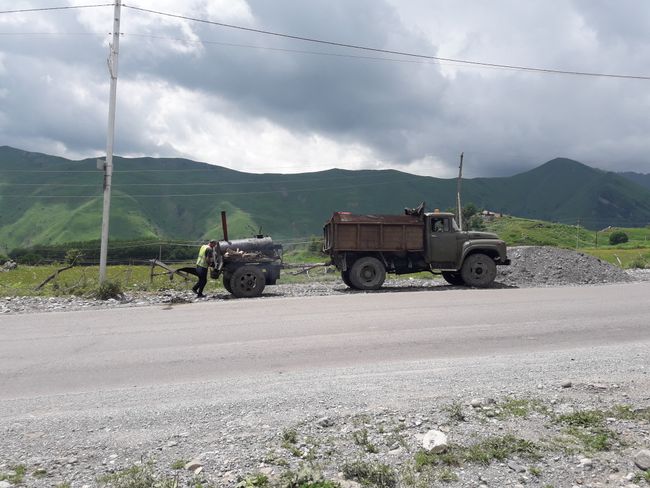
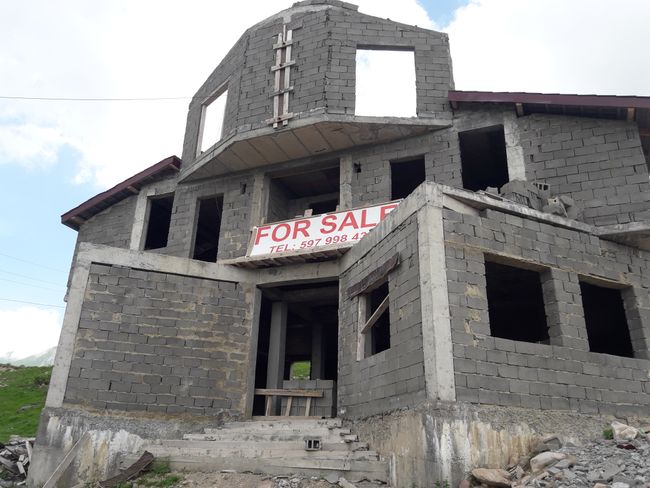
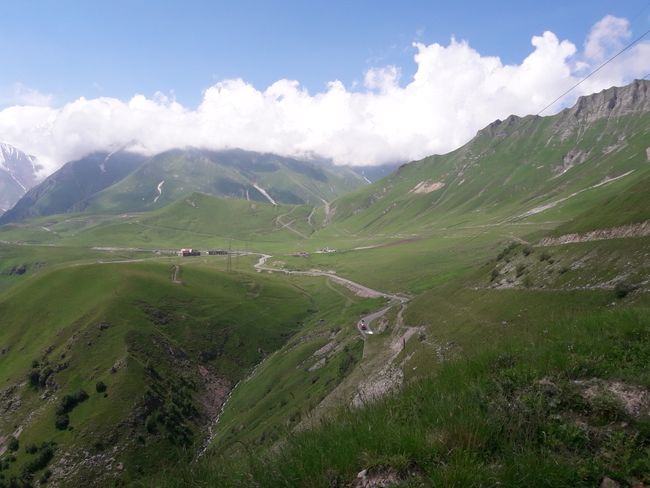
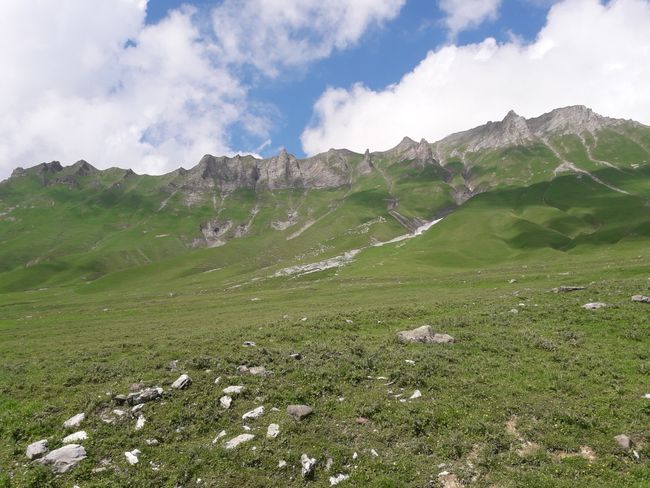
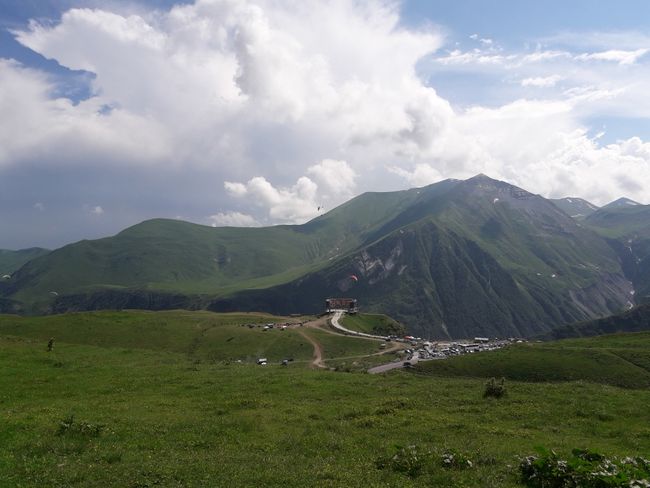
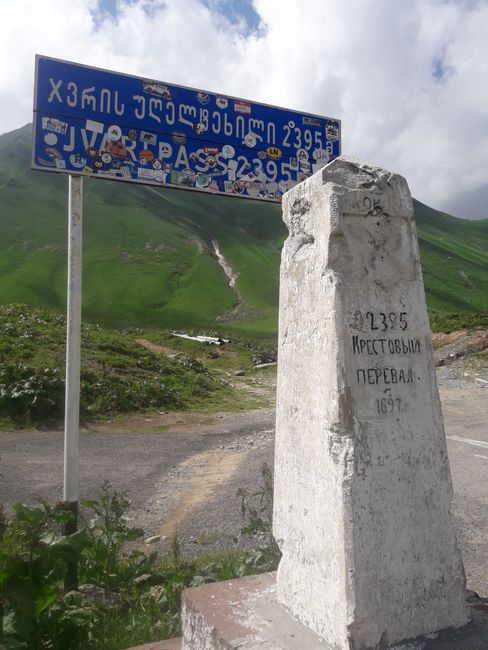
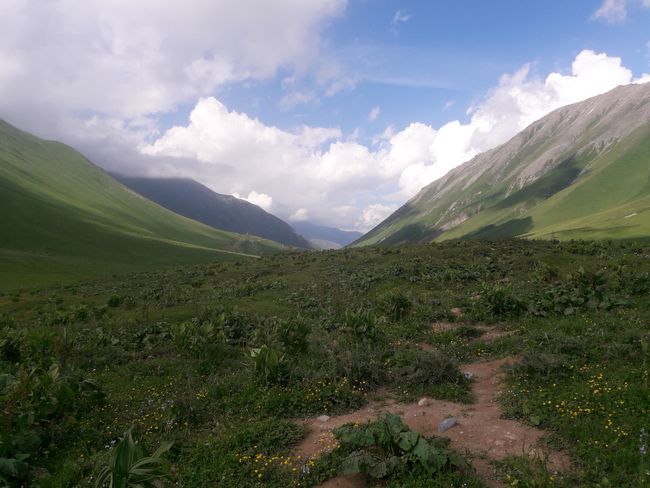
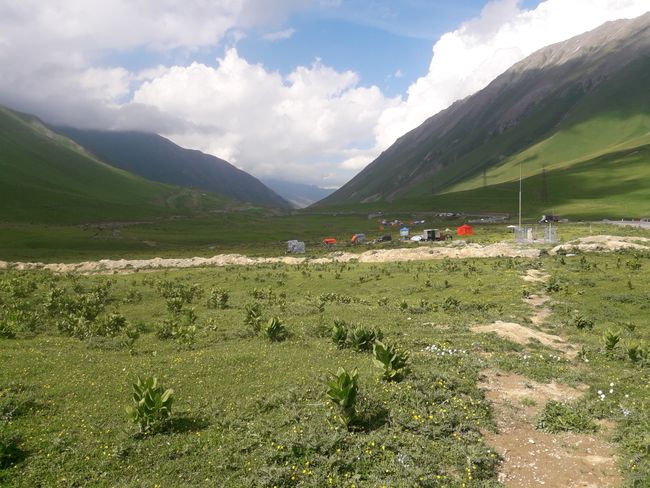
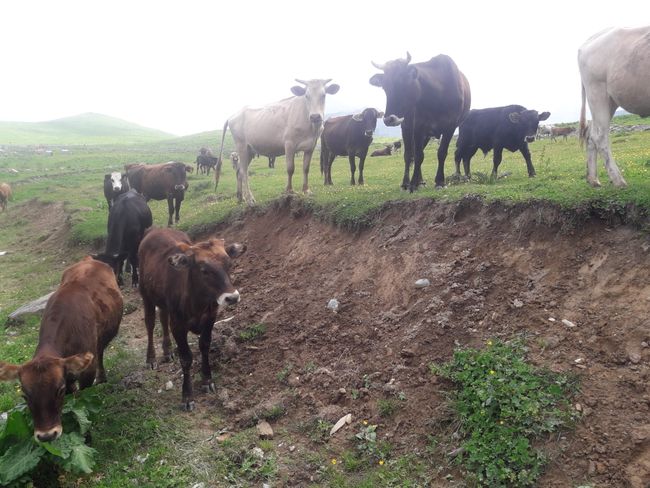
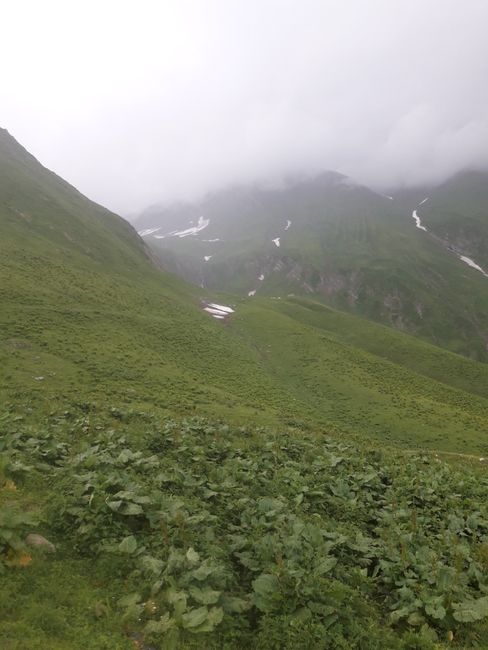
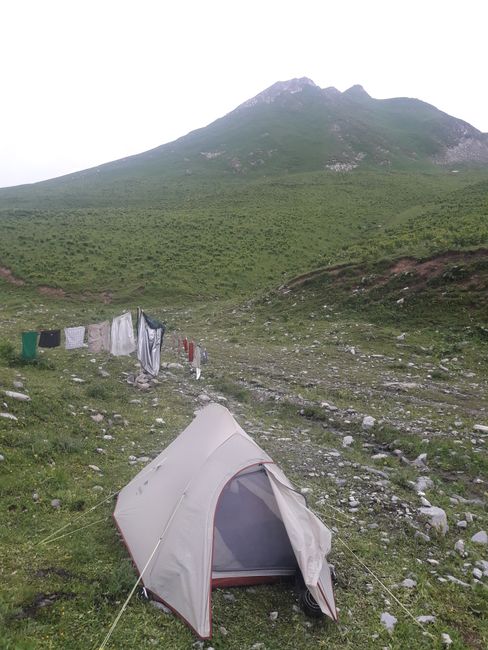
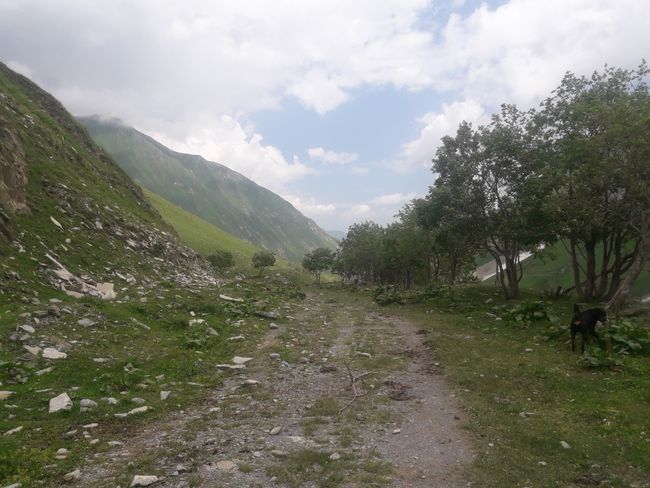
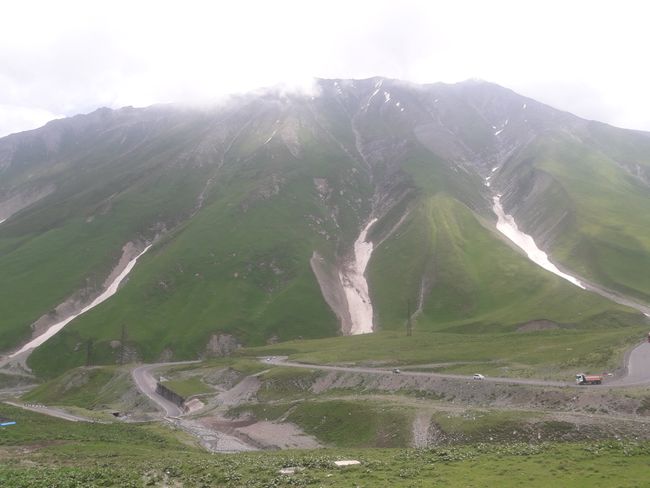
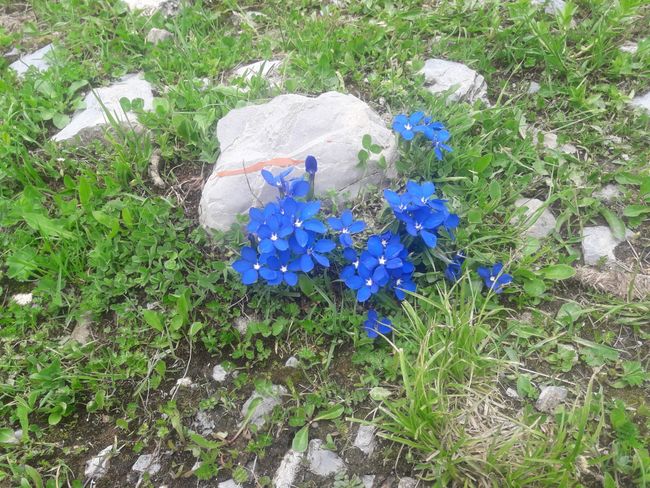
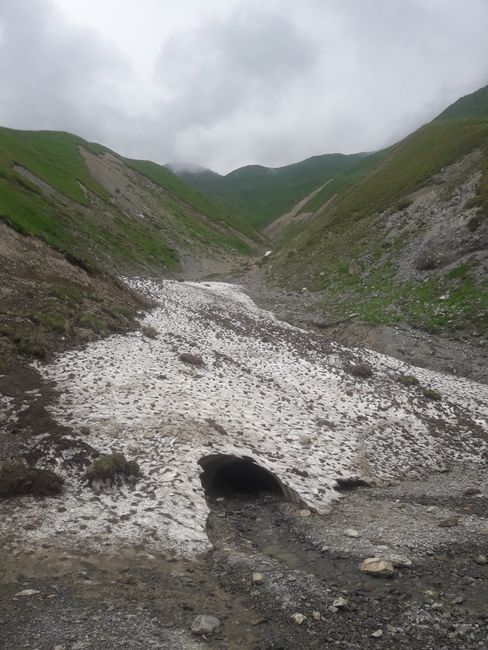
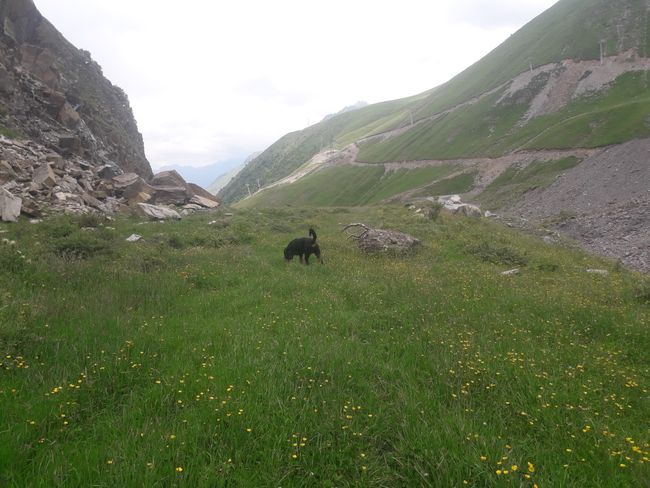
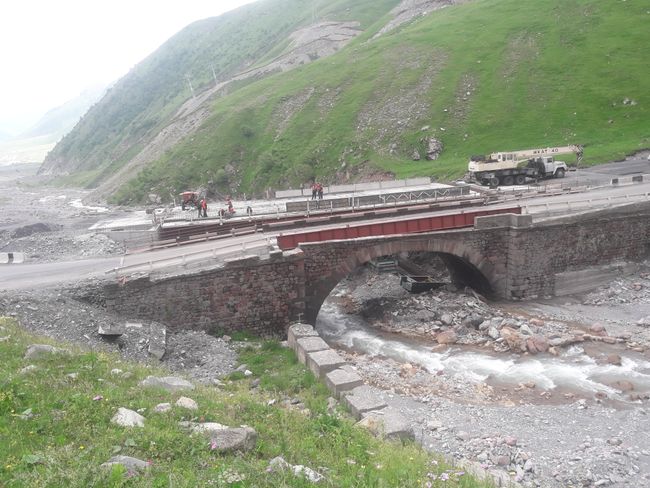
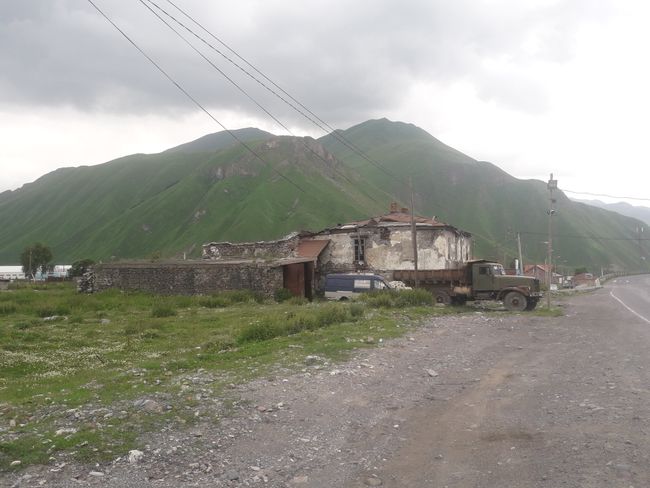
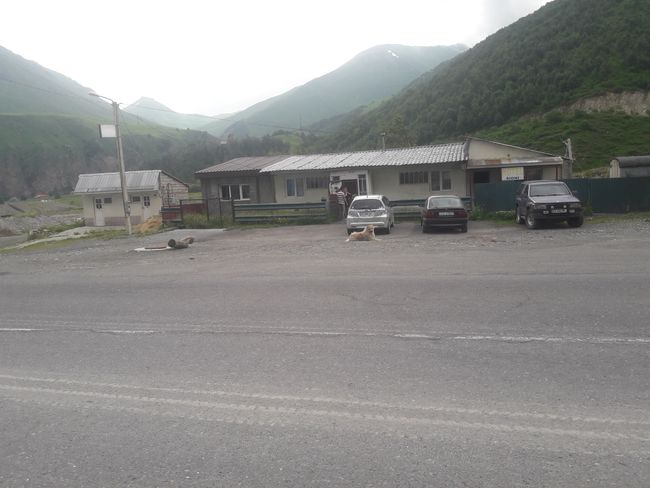
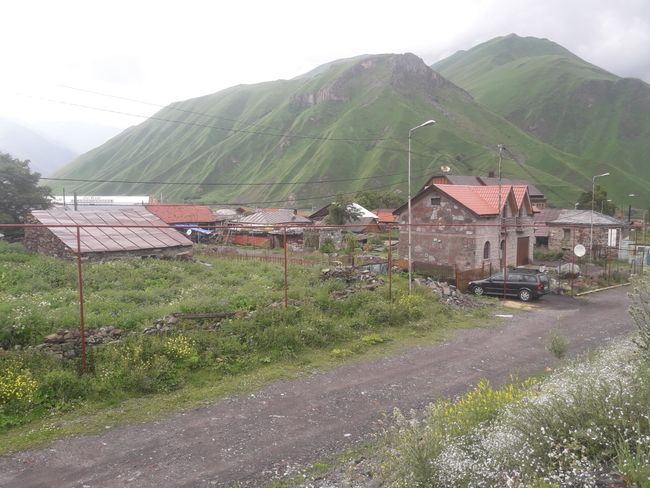
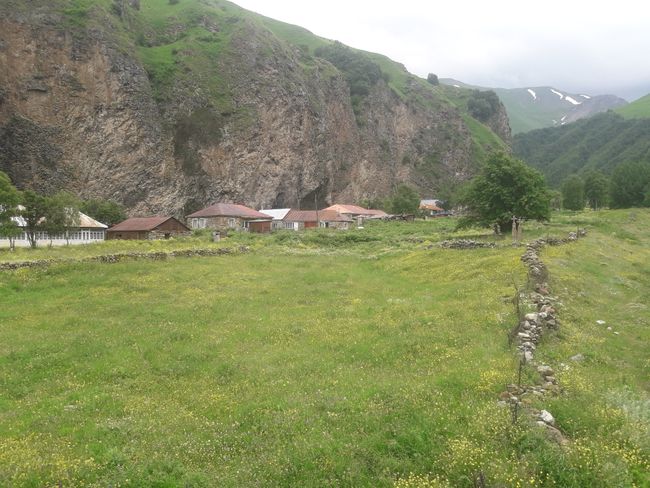
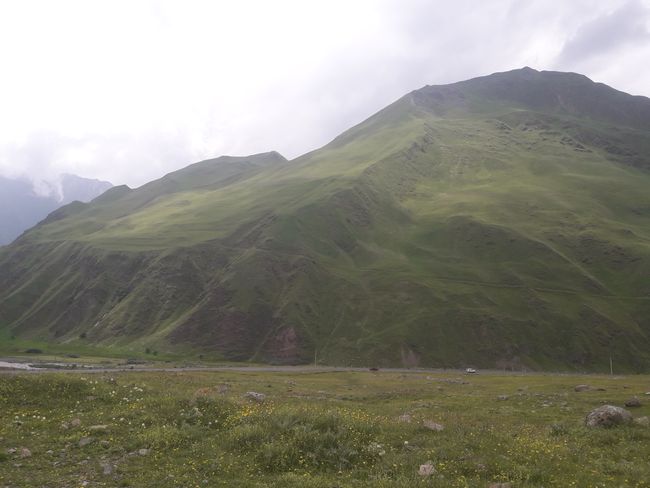
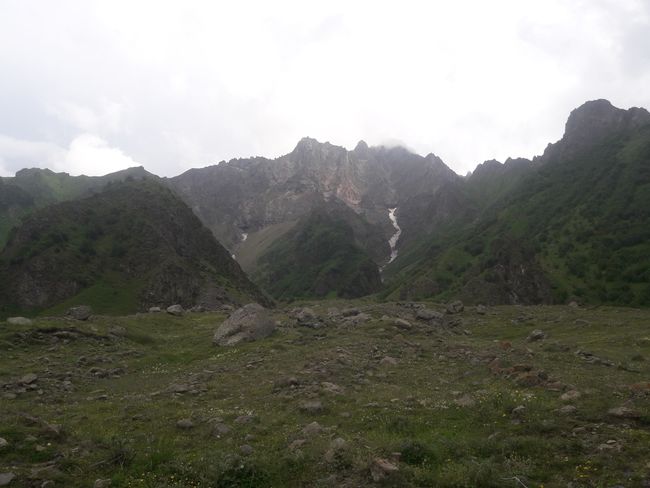
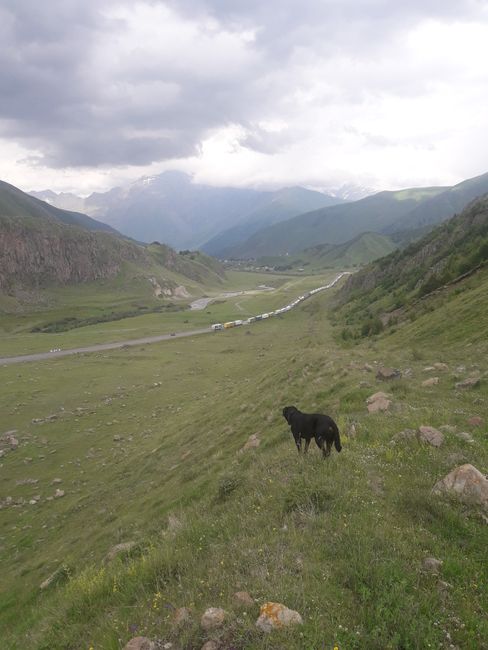
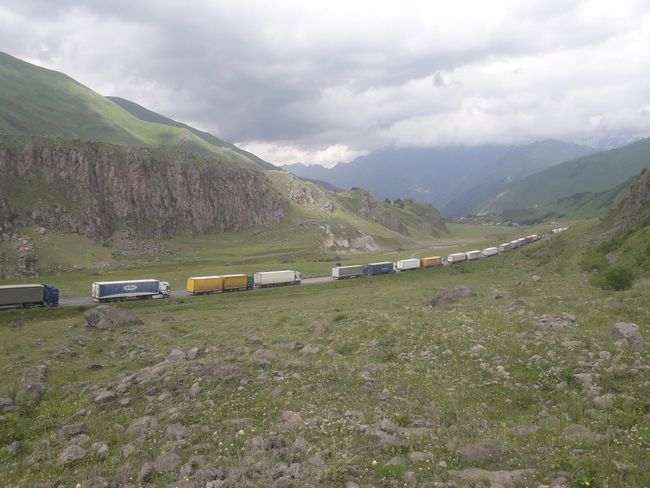
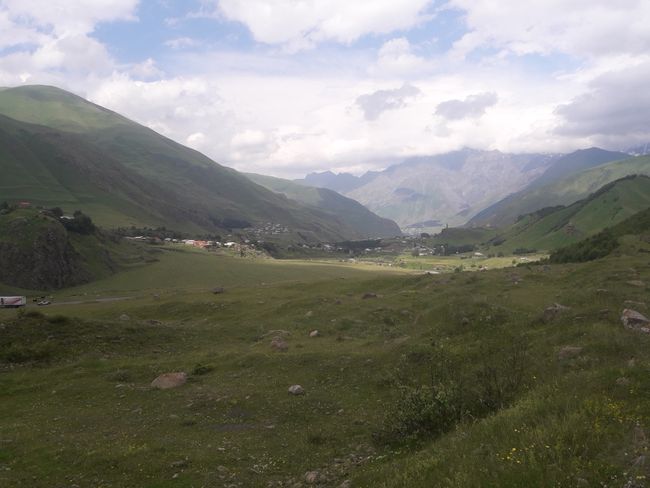
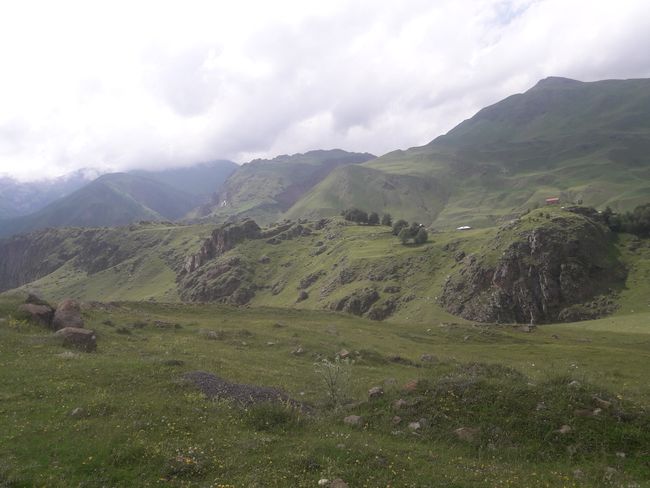
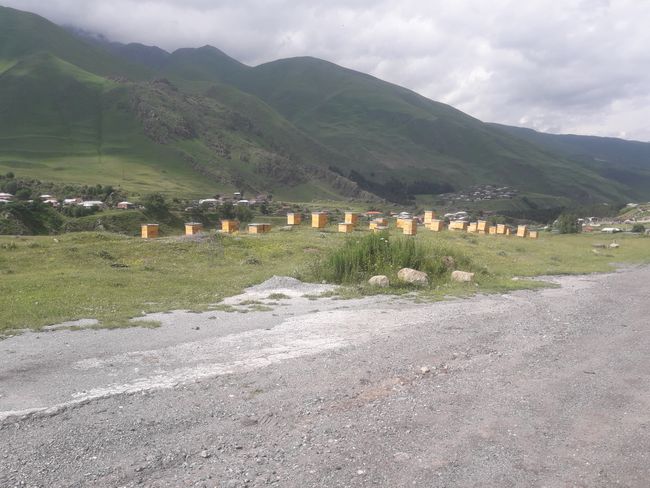
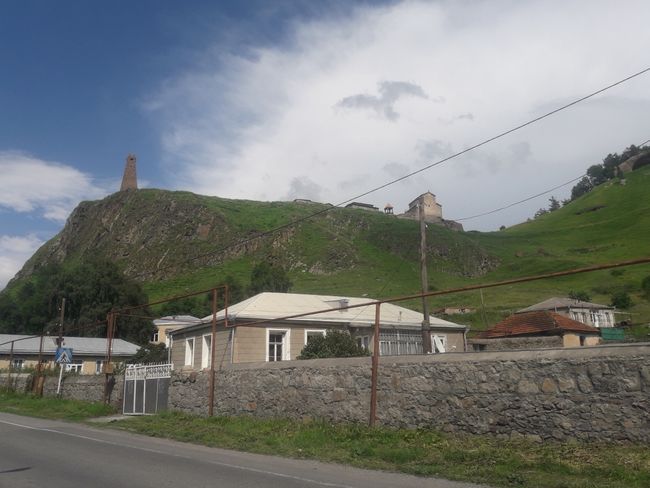
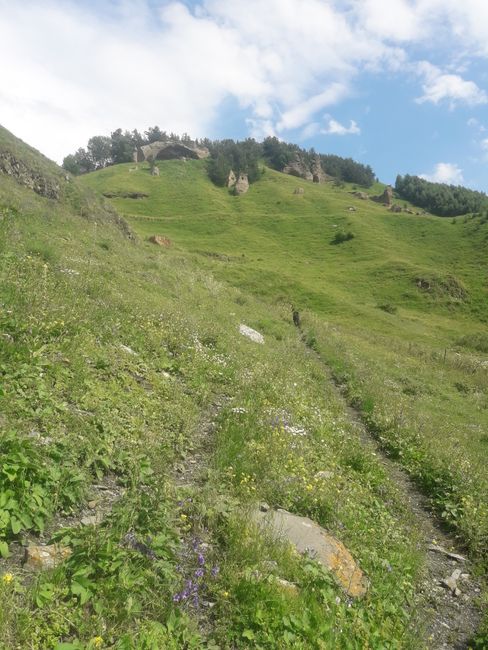
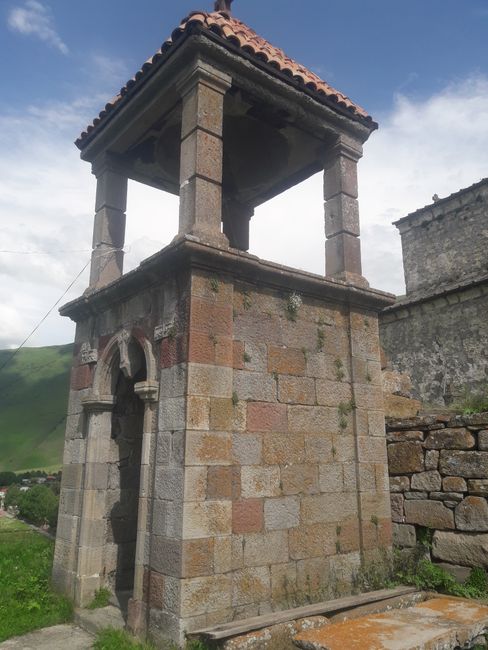
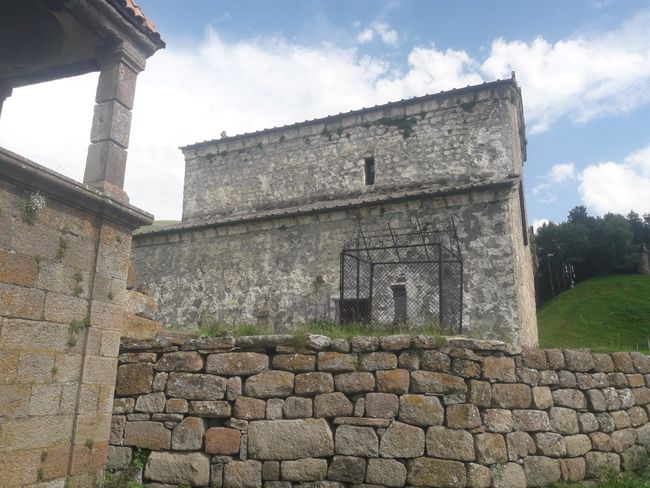
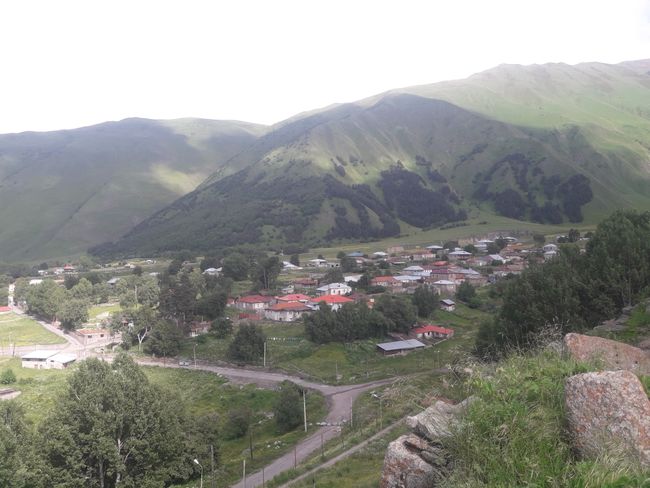
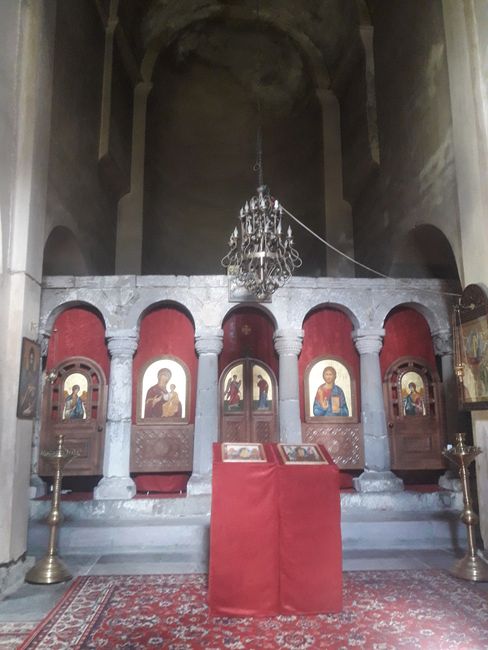
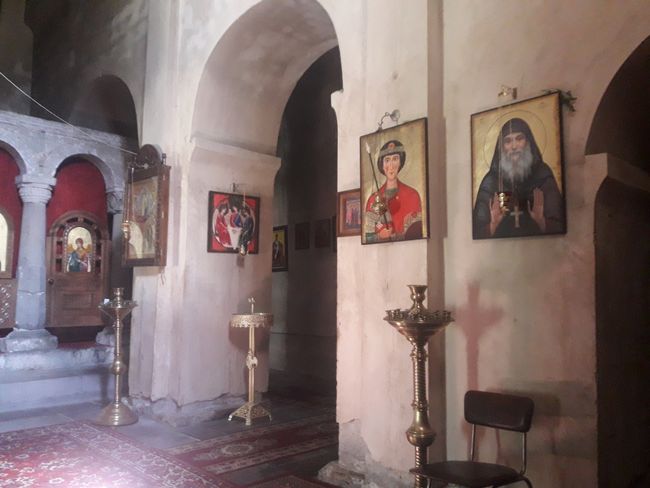
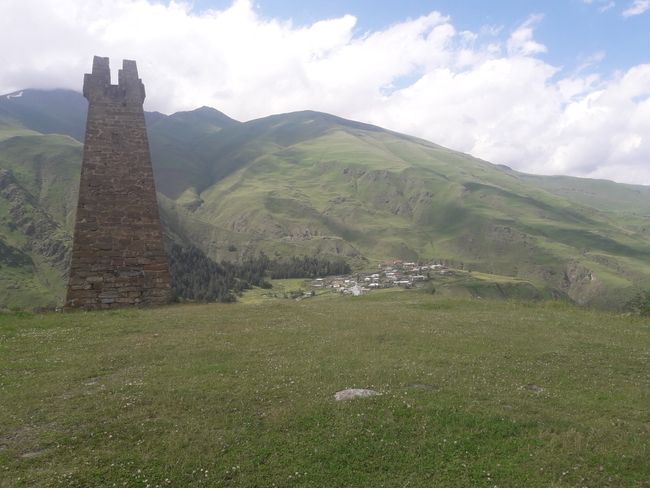
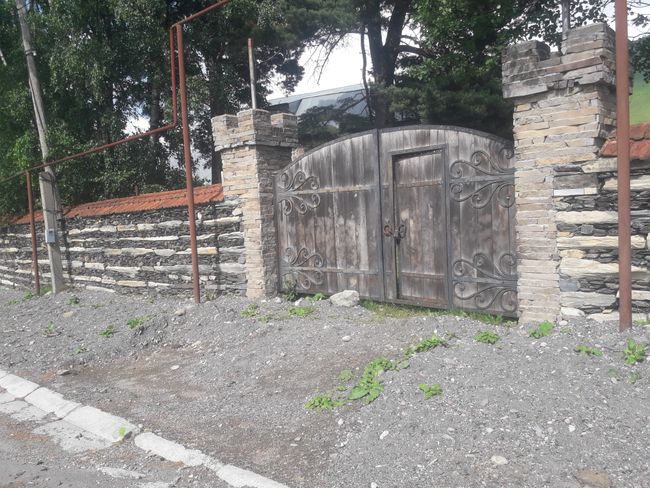
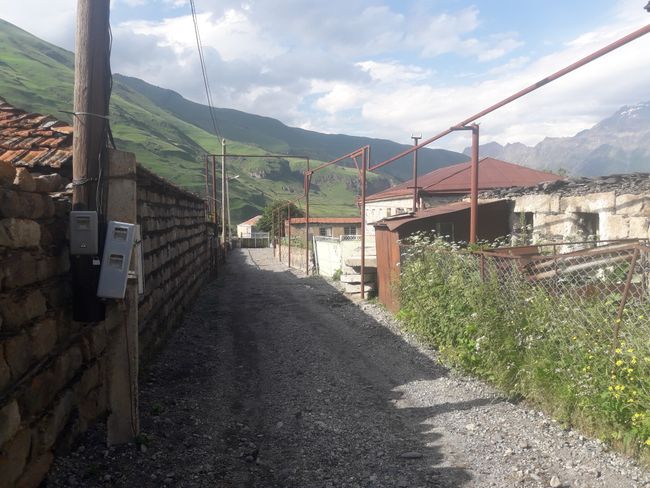
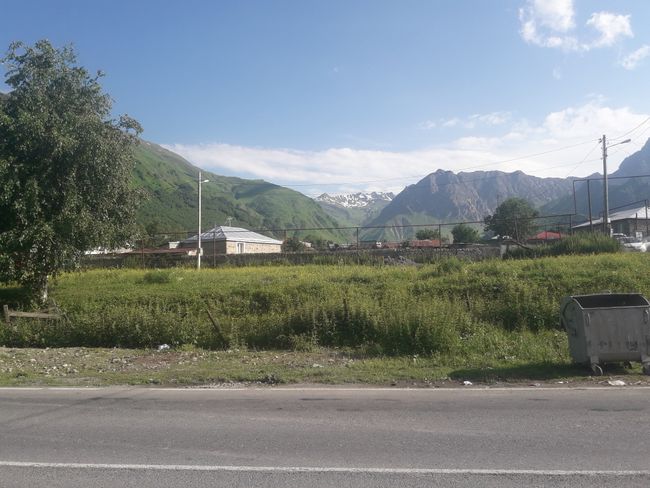
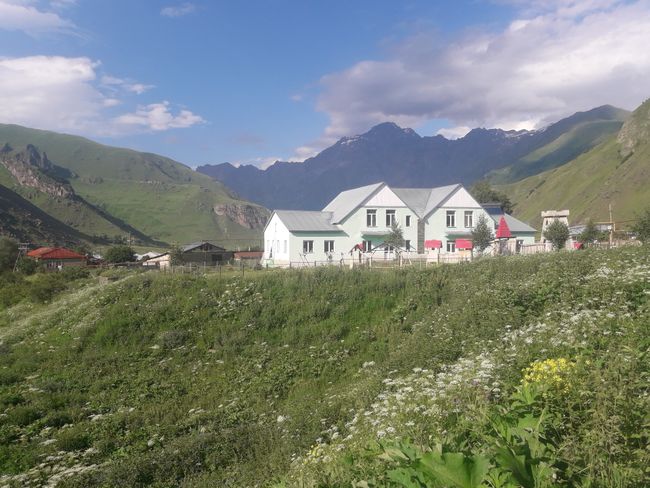
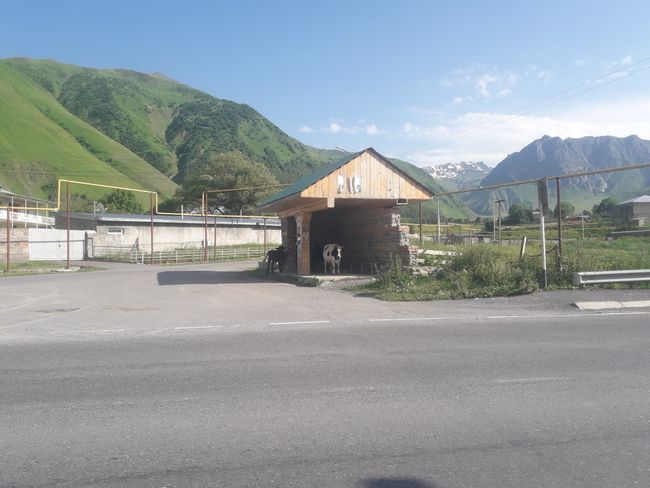
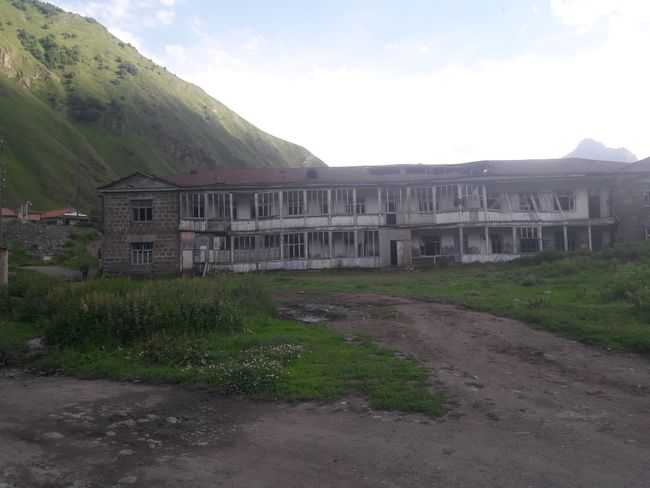
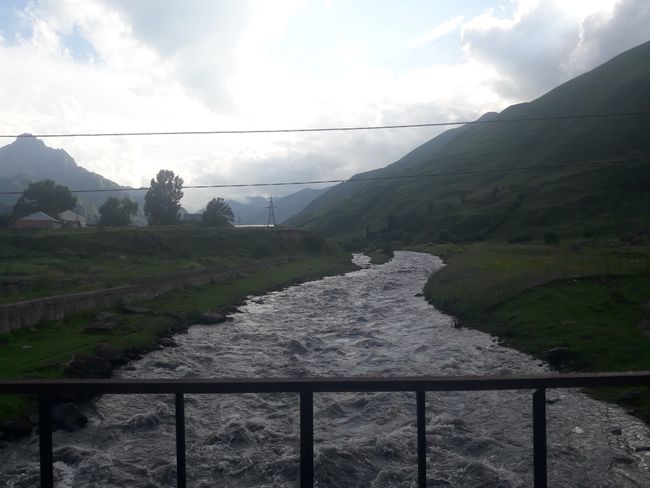
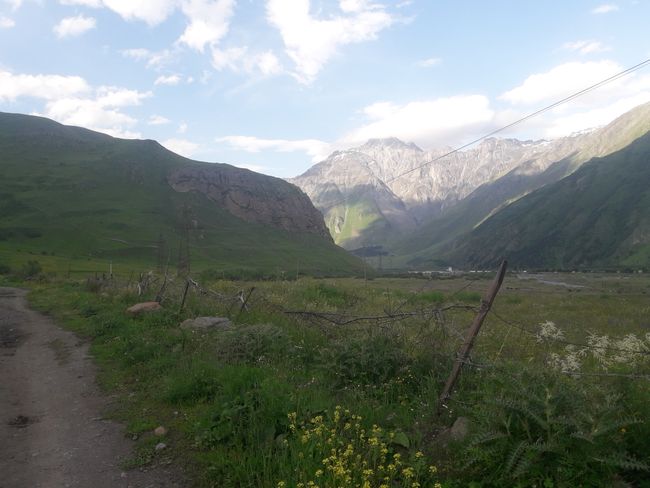
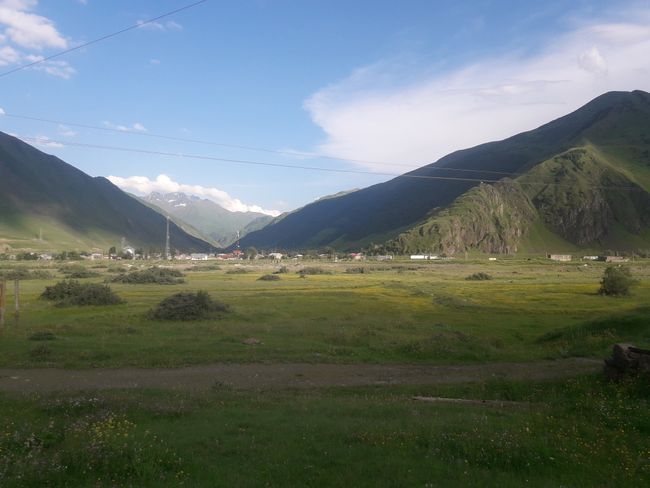
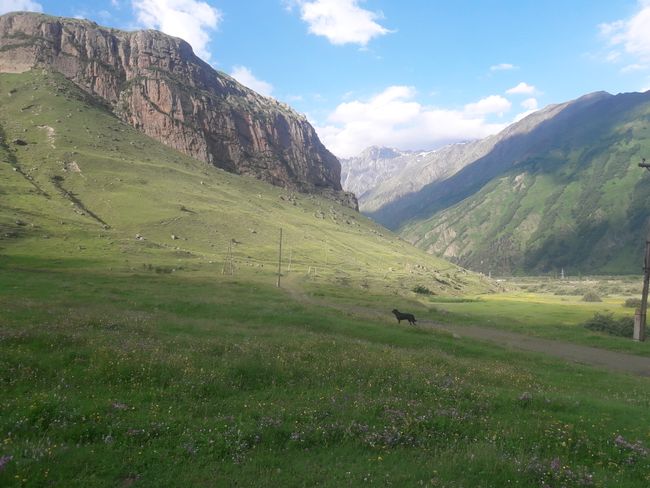
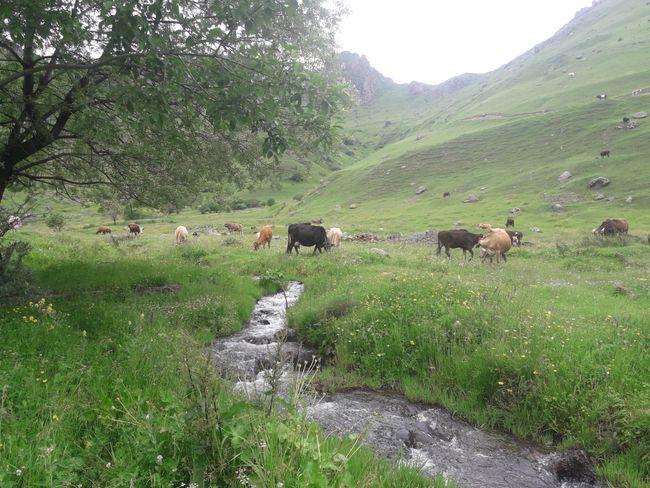
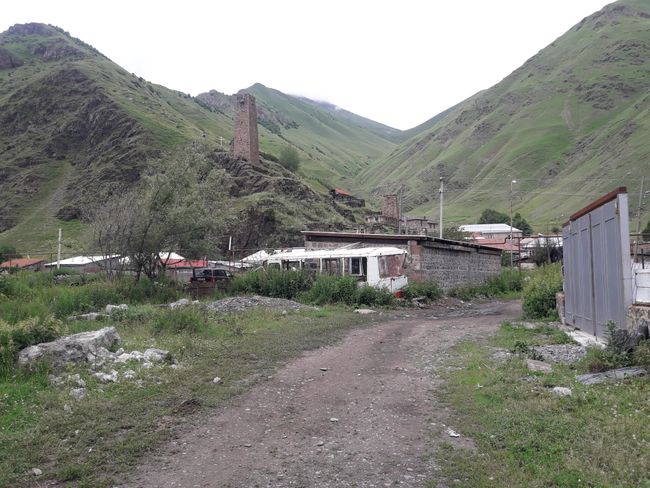
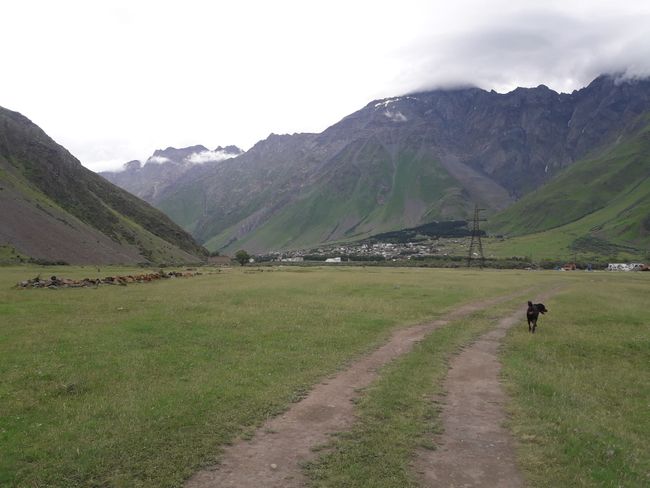
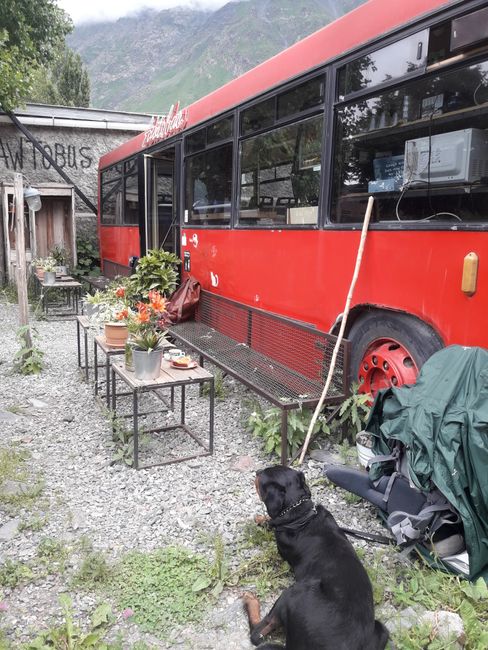
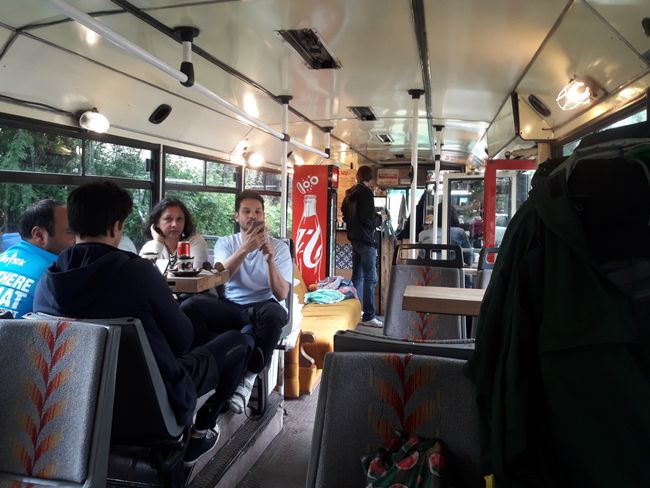
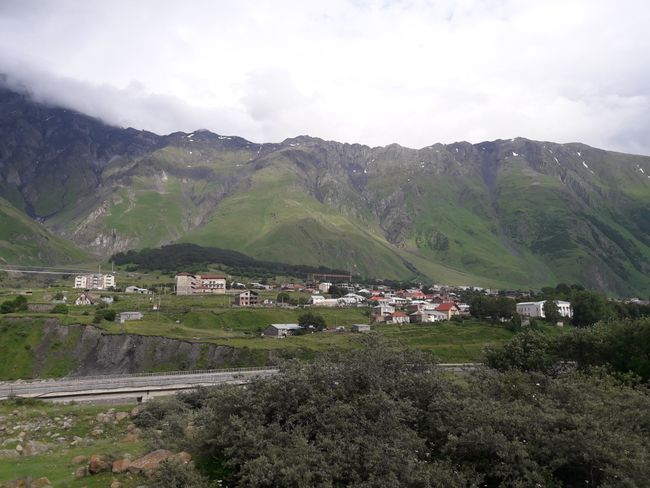
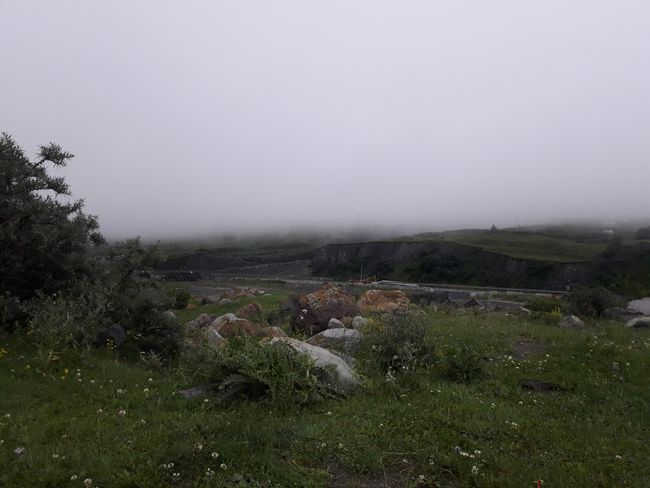
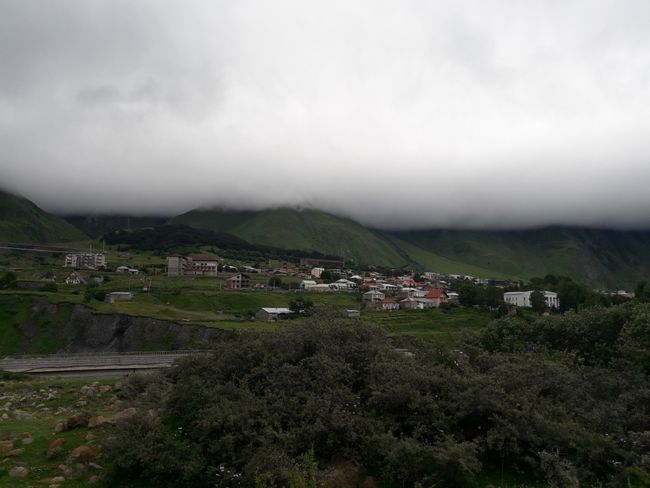
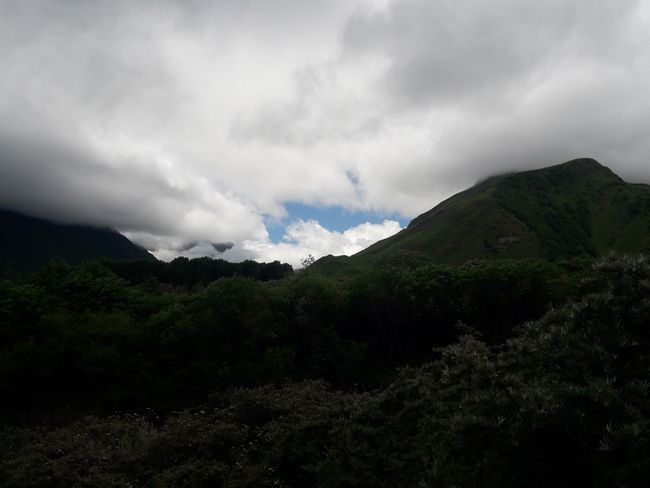
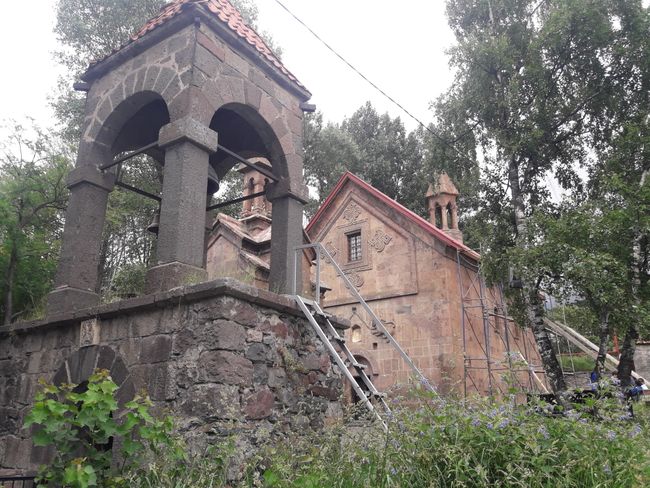
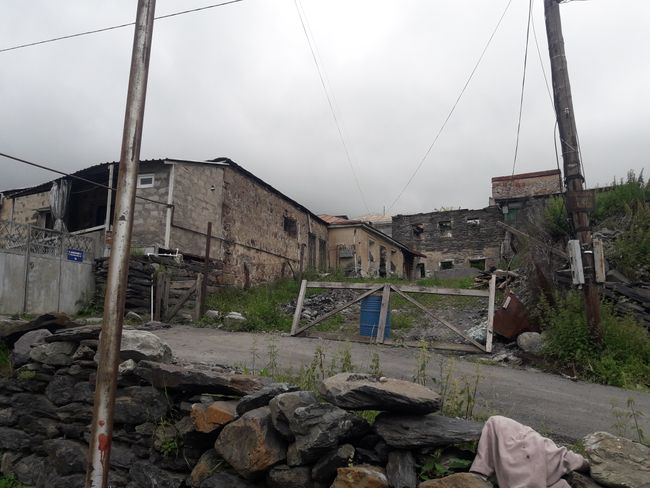
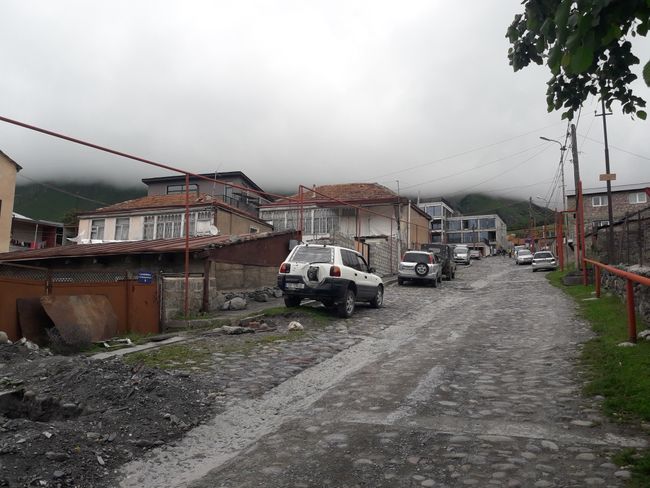
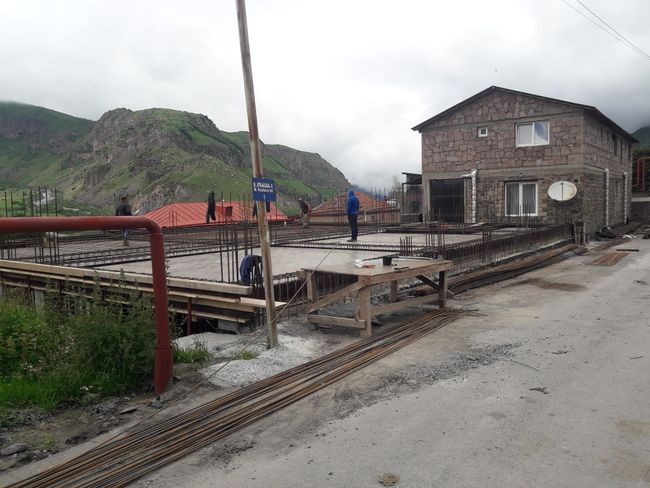
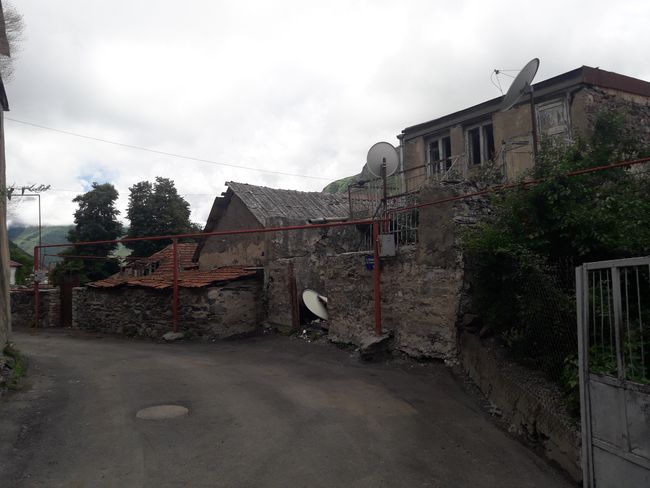
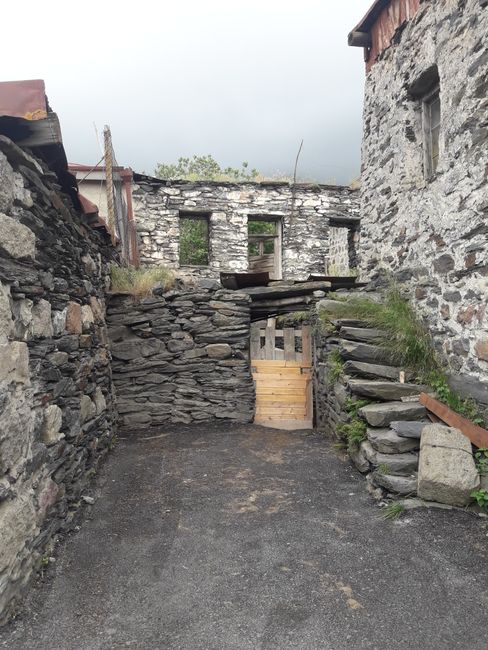
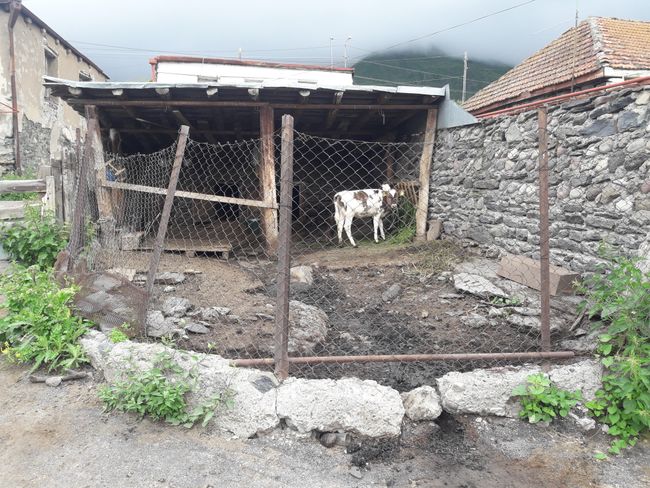
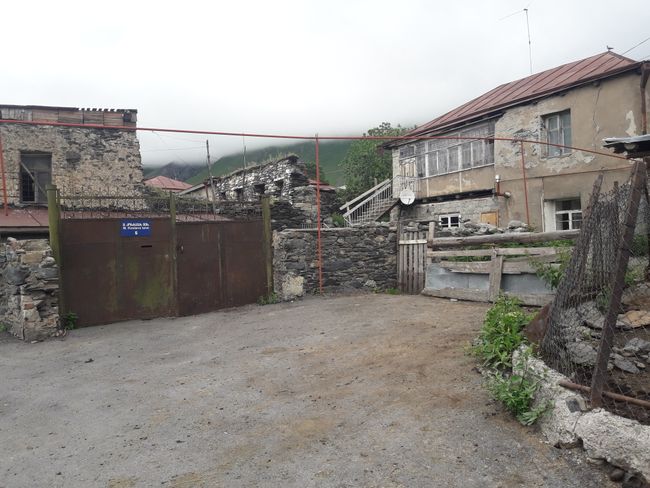
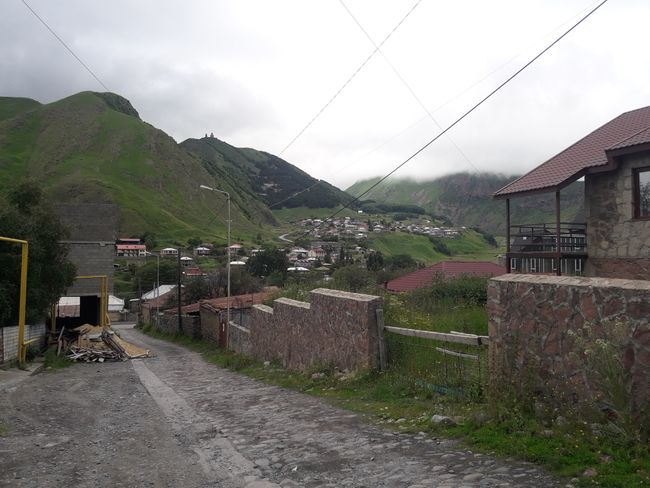
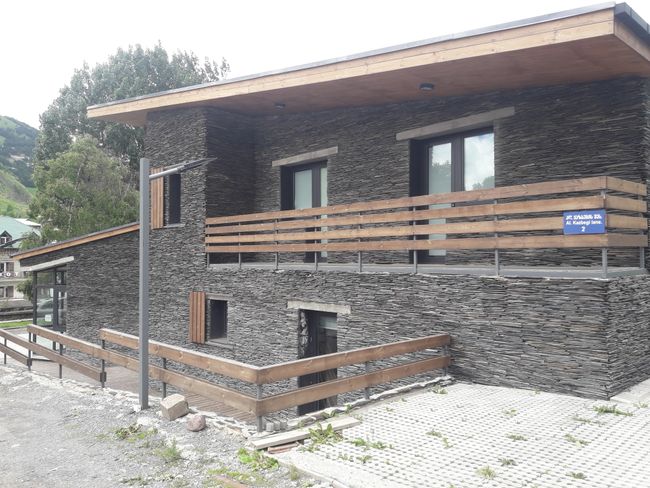
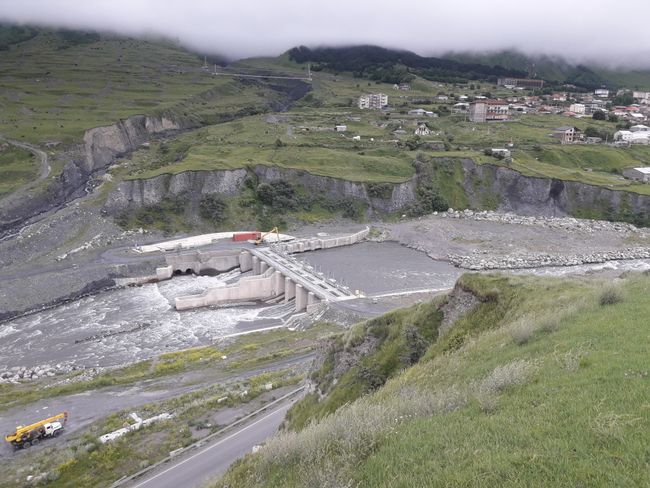
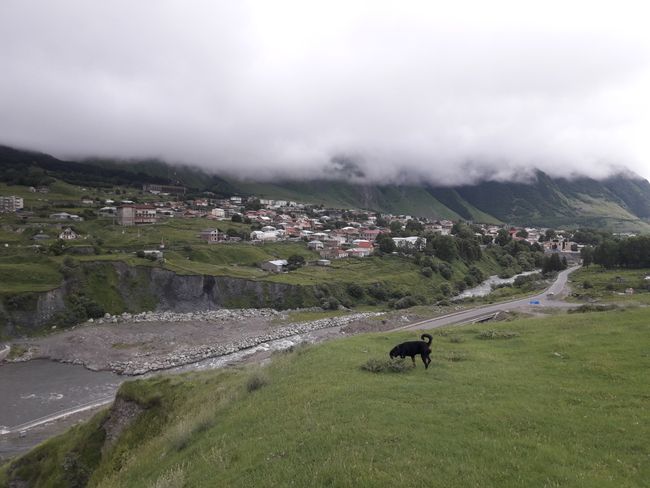
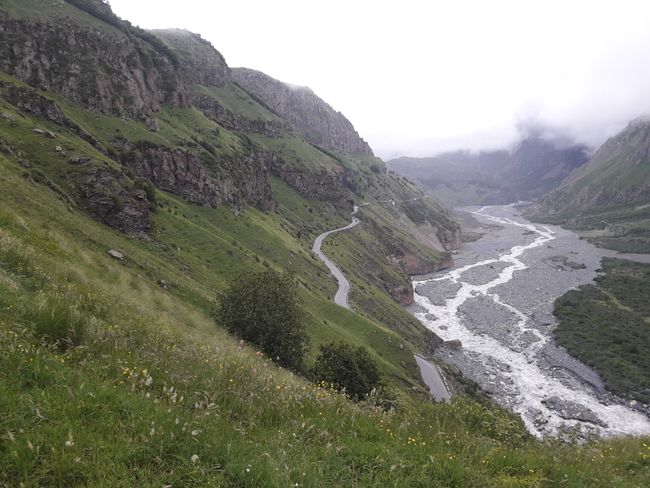
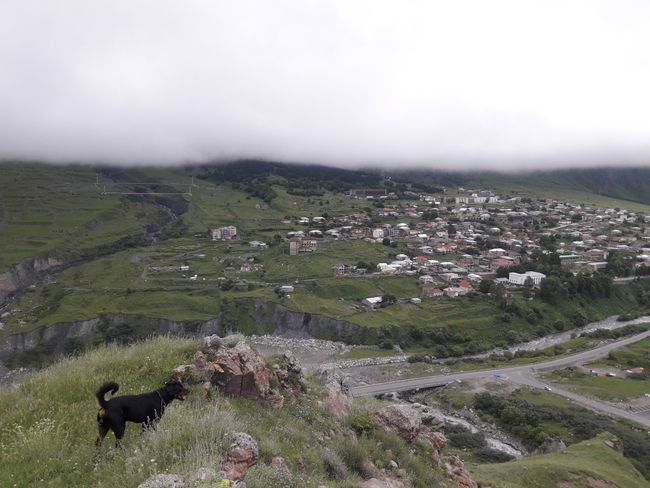
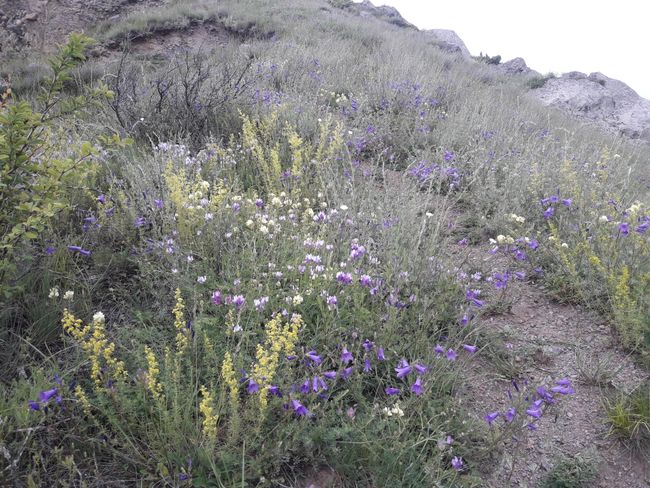
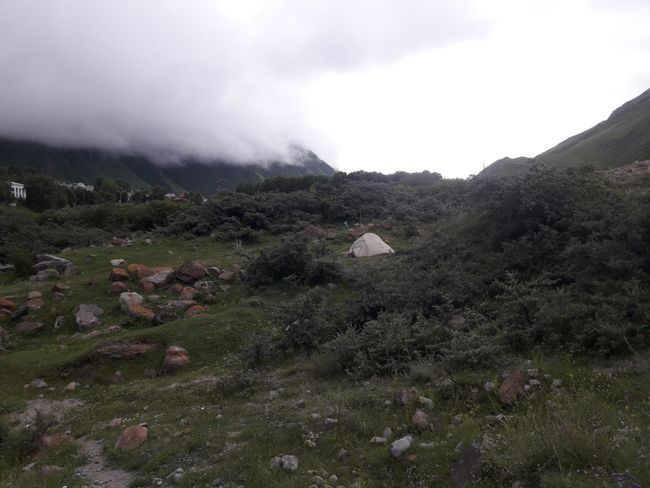
Გამოიწერეთ Newsletter
On Wednesday morning (26.06.2019) a loud rooster wakes me up in Passanauri. After a small breakfast at Nino's, it's time to continue our journey around ten o'clock. We say goodbye and thank them for their hospitality before we hike along small paths mostly along the White Aragvi River for the next 2 hours. Just before Nadibaani, I treat us to a break after 11 km. Rango gets acclimated in the shade while I enjoy a cup of coffee. Afterwards, we walk another 5 km along the Georgian Military Highway to Kvesheti, where an ice cream is waiting for me. Then we march on to Kvemo-Mleti, where I plan to do some shopping. Unfortunately, the plan fails due to the lack of a market, but I am invited by the residents of the local monastery to have mashed potatoes, cooked buckwheat, vegetables, and tea. Then I find a spot to set up the tent with Dicken. As the sky darkens a bit, I prepare my camping spot more carefully. It pays off. Shortly after we retreat under the tarp, heavy rain begins. My tent is built on sand, which increasingly soaks up and liquefies. The rainwater runs beneath the tent floor, and it feels like we're swimming. Not a good feeling, especially since modern tent floors are only semi-waterproof. However, it seems that we have survived the worst by late evening, and eventually, I fall asleep.
On Thursday morning, I take a bit longer after breakfast. The laundry I hung up the night before is still damp, and I let the tent dry in the sun before packing it up. We are ready to leave the campsite in Zemo-Mleti towards the Old Military Highway at 10:40 am. Just before it winds up the mountain to Gudauri, I treat myself to a cup of coffee and a khachapuri. The breakfast was a bit scarce in the morning. Then, refreshed (Rango got to enjoy half a cheese sandwich), we continue the ascent. After 6 km, we can leave the main road for a stretch of the way. We hike through meadows and a small settlement that seems to be mainly inhabited during the winter sports season. It's a pity because the surrounding landscape is also beautiful to admire in the summer. Then, just before Kumlistsikhe, we return to the main road. In the village, an older man gives us a ride in his van for about 3 km and drops us off above Gudauri at a market. Here, I replenish our food supplies and enjoy half a freshly baked bread with my coffee. We continue hiking around three o'clock, finding another small path above the main road. We cross the 2395 m high Jvari Pass and then continue a bit further north in the next valley. After nearly 20 km, we are surprised by a heavy rain shower, and I decide to set up the tent in the first available spot. So, after setting up the tent, I am soaking wet and can skip the evening laundry. Shortly after, the rain stops, and I could have waited it out under my raincoat. Oh well, next time. The sun even briefly appears before the day ends in the tent.
On Friday, June 28, 2019, I start the day quite relaxed. Both the tent and the laundry are not completely dry yet. So I have time for shaving; the full beard is not back yet. Then, slowly, the stuff is drying, and we can continue our way to Kazbegi in the early afternoon. Along the way, I lose the path marked on my map, and the cattle path we follow saves us a few kilometers of road walking. Just before the village of Kobi, we are back on the main road, and in that little place, I take the first opportunity for a hot drink and a cheese pastry. After a rain shower, we continue through the village, which seems quite deserted. Apart from a police station, a ski lift base station, and a bakery, there doesn't seem to be much infrastructure here. Tourism seems to be mainly concentrated in the nearby Gudauri on one side and Stepanzminda on the other. Just past the village, we can leave the unpopular main road again and continue north along the gas pipeline coming from Russia on the eastern slope. After about 14 km, we reach Sioni and climb directly to the church on the outskirts of the village. Like most Georgian churches, it is a simple structure. Then we go into the village, and while I pause for a lemonade and some cookies, a few youths bother us and want to take Rango for a walk and ask me many questions. Shortly after five, it's time to move on. In Arsha, I buy fresh bread from the baker and some other small items from a market before we cross the Tergi River and set up camp at a small clean tributary. I will save the last 5 km to Stepanzminda for Saturday, which is enough for today.
So, on Saturday morning, the drizzly and foggy weather doesn't bother me either. I'm not in a hurry and stay in the tent despite the bad weather. Thanks to the strong wind blowing, my clothes are dry by noon, and we can set off to Kazbegi around twelve o'clock. There, we stop at the Awtobus (a red bus converted into a cafe) over an hour later. I treat myself to a piece of cake with my hot drink, charge my battery, and procrastinate a bit. In the meantime, I write and publish a travel article and learn Russian. The next few hours pass fairly quickly. Outside, the weather is cold and wet again. Around five o'clock, the first gaps in the clouds appear, and I replenish our food reserves before going on the search for a camping spot with Dicken. We find one just outside the village at the foot of a small hill and set up for the next two nights. We deserve a rest day on Sunday.
Even on Sunday (June 30, 2019), it's mostly uncomfortable outside. There is strong wind, occasional rain, and chilly temperatures of 10°C. So we spend most of the day in the tent. Around noon, I go into town for coffee and grocery shopping and take a short stroll. In the center, decaying houses alternate with new buildings. A mixed picture. Back with Rango, who was on tent duty, I prepare dinner for myself, Skype with home, and then hike up the hill near the campsite with Dicken. Then it's back under the tarp and into the town in the early evening.
Გამოიწერეთ Newsletter
Უპასუხე
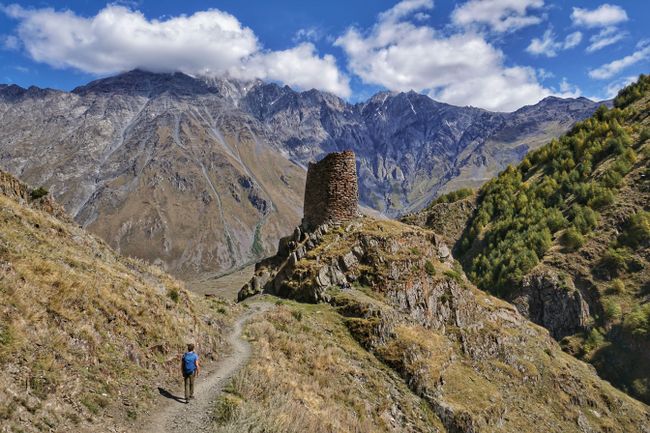
Მოგზაურობის ანგარიშები Საქართველოს
